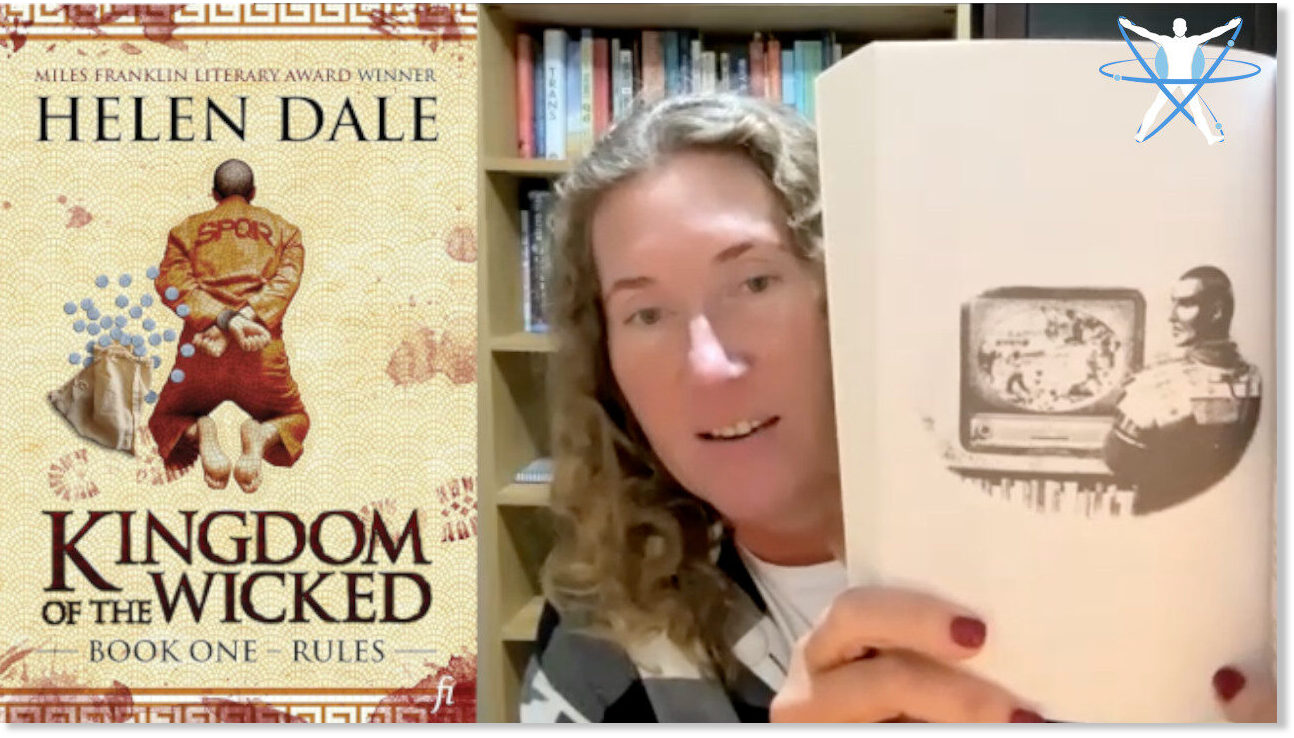If you don't mind, just a shout out to your recent MindMatters show with Helen Dale:
Helen Dale, lawyer and award-winning author of 3 novels, including The Hand that Signed the Paper, writes at Law & Liberty and Not On Your Team, But Always Fair. Her two-novel series Kingdom of the Wicked is an alternative history of...

www.sott.net
Helen was very energetic, and if ever available would appreciate a transcript of the show - it moved fast.
Have not read her books, although will check out her substack as the show revealed that there are some interesting lines of force embedded, including referencing to Lorenzo Warby, as Helen describes.
Of Lorenzo, liked Helen's talk on policies, basically getting to a place where saner heads prevail and stupid social policies have a strikethrough pen applied. At the top, this would drive funding to universities, who then would have to start strikethroughs on their own policies (having no more funding) and relegate the Marxist types to a museum.
Learned a few things from her talking on Australian politics (interesting dynamics), and what she said in reference to Josh Slocum i.e, the
cluster B personality of lobbyists, which makes much sense to me.
Of the above and more along the lines of social structure changes, Helen mentions she originally saw the beginnings around 2015 (if correct). A working hypothesis for me goes back to 2012 (of course it all goes back further in time), when policy and law started to introduce (and did not recognize it then) the legal focus on bullying and harassment (federal, provincial, municipal and corporate level). Cavate, this is something that makes sense in many cases, one can't really argue with the merits of it - its needed and there are egregious examples. However, legal mechanisms were already in place too - often just underutilized, and when (from experiencing) it was revamped and rolled out through workplaces, it did two things. One, was to bring to light injustices that were always simmering below the surface into a framework that people could understand and take action with. That's fine. Secondly, though, it also brought out of the woodwork those with (to use Josh's words) cluster B disorders, wherein they had new legal shields to go on the attack - and they did and still are doing so in great numbers. From these laws, policy's were quickly drafted up at all workplaces, including at universities that filtered down to the student body. As one may see, it got to a place where anything could be considered harassments, ones speech, free speech even to the point of microaggressions. It became a vehicle for safe-spaces, for canceling, and revenge on anyone a person did not agree with. Don't like your colleague (male or female), supervisor, manager or even a customer, there is a policy that gives you the right to make accusations even to the point of using the plausible lie. Accountability is a low threshold, and yet accusations are almost like gold to the unscrupulous, often with very poor investigative processes in place, if it even gets to that with the outcomes often tilted.
In 2012 it became a little crazy out there, and as observation and legal reviews go, the BS part might have been running at 60%, which does no one any good who really needed the protection (which again was already there). Thus, it might be observed to have helped divide (on a trust level) social interactions, when people became too afraid to even have a meting with someone without the door open (and indeed that has been the case) - to afraid to look at someone that they may take it the wrong way, setting the stage for so many other social grievance that followed.
Just speculative legal policy though that might be wrong - it is complicated.
Back to Helen, though, wherein at the end she jumps into the broad historical issue of psychopathy in background history - Harrison brought up Hermann Göring at his final stay at Nuremberg, and Helen brought up Heydrich and his wife under his thumb, and all else in his sphere (as well as Police Battalion 101 - see MindMatters show on this). Good God, the damage they did and do through time.
Thanks guys!


 . Anyway, thanks guys, I was not familiar with her, but have subscribed to her substack and some of the others she's recommended.
. Anyway, thanks guys, I was not familiar with her, but have subscribed to her substack and some of the others she's recommended.